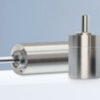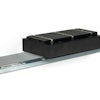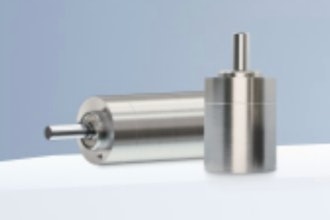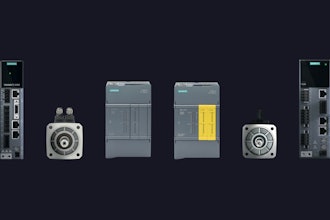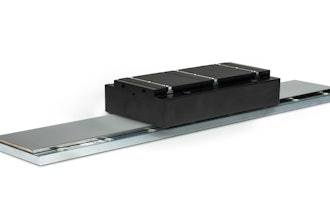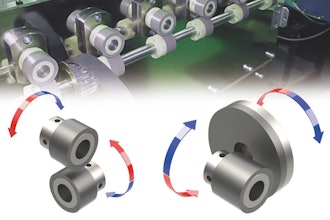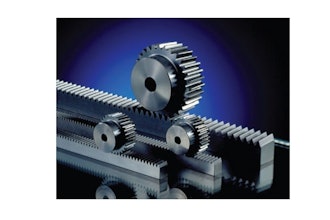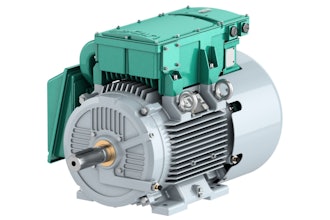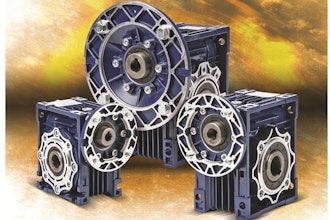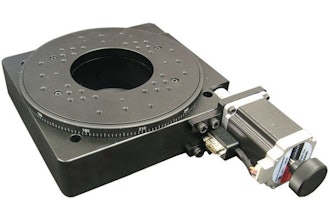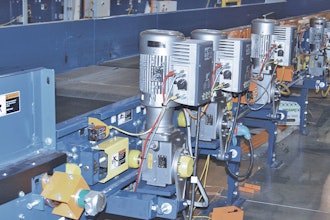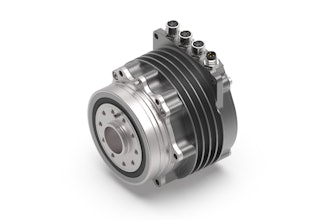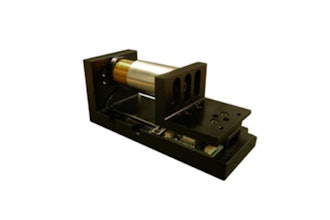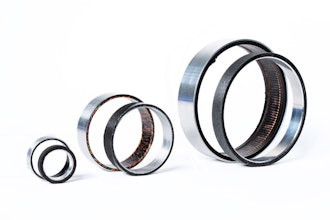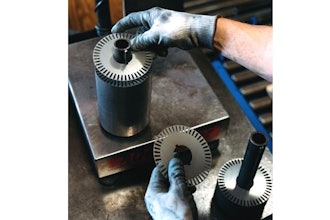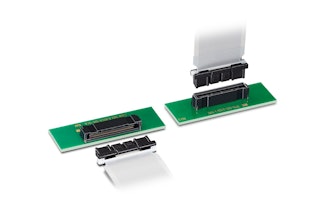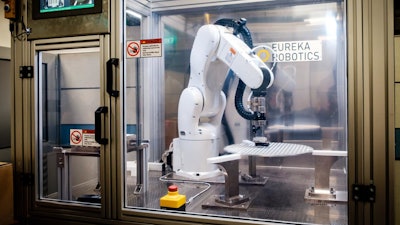
A robotics technology start-up from Nanyang Technological University, Singapore (NTU Singapore) named Eureka Robotics, has unveiled a new robot that can pick up delicate optical lenses and mirrors with care and precision, just like a human hand.
Named Archimedes, the robot is developed by the same NTU team behind the "IKEA Bot" last year which attracted international headlines when it assembled an IKEA chair autonomously in less than 9 minutes.
Archimedes can slot lenses and mirrors of different sizes into a custom loading tray, to get them ready for coating.
This will be a boon to the manufacturers for optical products such as cameras, medical imaging and eyewear, as it eliminates defects in production and improves productivity.
In 2017 the Global Optical Instruments and Lens Manufacturing Market was worth $19.1 Billion and is expected to reach $27.0 Billion by 2022, according to a market report[1] by international market research firm Research and Markets.
Archimedes has a 6-axis robot arm controlled by algorithms that use Artificial Intelligence (AI) to plan its motion and how much force to exert in its grip to create a system that can mimic the dexterity of human fingers and the visual acuity of human eyes.
NTU Associate Professor Pham Quang Cuong, who founded the spin-off company Eureka Robotics, will unveil Archimedes at the leading trade event in Southeast Asia for Industry 4.0, Industrial Transformation ASIA-PACIFIC 2019.
This built-in-NTU innovation was supported by the SMART (Singapore MIT Alliance for Research and Technology). Its development from a lab concept into a prototype that is now going out to market is one fine example of technological translations taking place at the NTU Smart Campus.
Through its Smart Campus vision, NTU aims to harness the power of digital technology and tech-enabled solutions to support better learning and living experiences, the discovery of new knowledge, and the sustainability of resources, in support of Singapore's ambitions as a Smart Nation.
Pioneering High Accuracy/High Agility Automation
Assoc Prof Pham said their new robot is different from other robots currently used in the industry, which have either high accuracy but low agility (where robots perform the same movements repeatedly), or low accuracy but high agility (such as robots handling packages of different sizes in logistics).
Archimedes is among the first robots with High Accuracy - High Agility (HA-HA) to be deployed on the manufacturing floor.
The HA-HA concept was previously demonstrated by the NTU team in the "IKEA Bot", which assembled an IKEA Stefan chair in 8 minutes and 55 seconds. It consisted of a 3D camera and two robotic arms equipped with grippers that could pick up tiny objects like a wooden peg, and slot them into holes with sub-millimeter precision.
"With Archimedes, we have taken accuracy to the tens-of-micron level," said Assoc Prof Pham from the School of Mechanical and Aerospace Engineering. "Its accuracy of placing objects is within a tenth of a millimeter, yet it does so with the gentleness of a human touch, made possible by our control algorithms."
While the robot also takes a few hours to slot delicate optics into a designated tray just like a human operator, the operator can now focus on higher-level tasks after taking three minutes to start the robot on its job.
The robot uses AI to analyse how many lenses there are and their respective sizes, then an algorithm plans the most efficient way to slot them onto the tray. An alert sounds once the task is complete, so the operator can remove the fully-loaded tray, ready for the next manufacturing process.
Using AI-powered robots will also enable manufacturers to collect real-time data, which can be analysed to improve their production processes.
Archimedes is the latest innovation by Assoc Prof Pham's team, who has developed several advance concepts in robotics, from autonomous planning and routing to advanced algorithms.
For instance, last year his team demonstrated the use of two mobile robots 3D-printing a 1.8 meter concrete structure concurrently without any conflict, and to even print while moving.
Technology Commercialization
The technology powering Archimedes is protected by a technology disclosure filed through NTUitive, NTU's innovation and enterprise company, which is incubating Eureka Robotics and its team of six researchers on the NTU Smart Campus.
CEO of NTUitive Dr Lim Jui said, "By tapping on disruptive technologies such as robotics and AI to create unique products capable of improving existing work processes, Eureka Robotics is setting an example of what our start-ups need to do for Singapore to maintain its competitive edge. We are proud to have helped Assoc Prof Pham and his team achieve their goal of delivering robotic solutions that will bring great value to their customers."
Eureka Robotics will be delivering Archimedes to a US laser optics manufacturer, after which it will look into adapting the platform for other types of manufacturing processes currently done with manual labor, such as drilling and tapping of custom machinery.
"Archimedes does laborious and repetitive tasks, so humans can be freed up to do more creative and meaningful work. Companies can then improve productivity, efficiency, work safety, manufacturing outputs, while optimizing labor," added Assoc Prof Pham.

